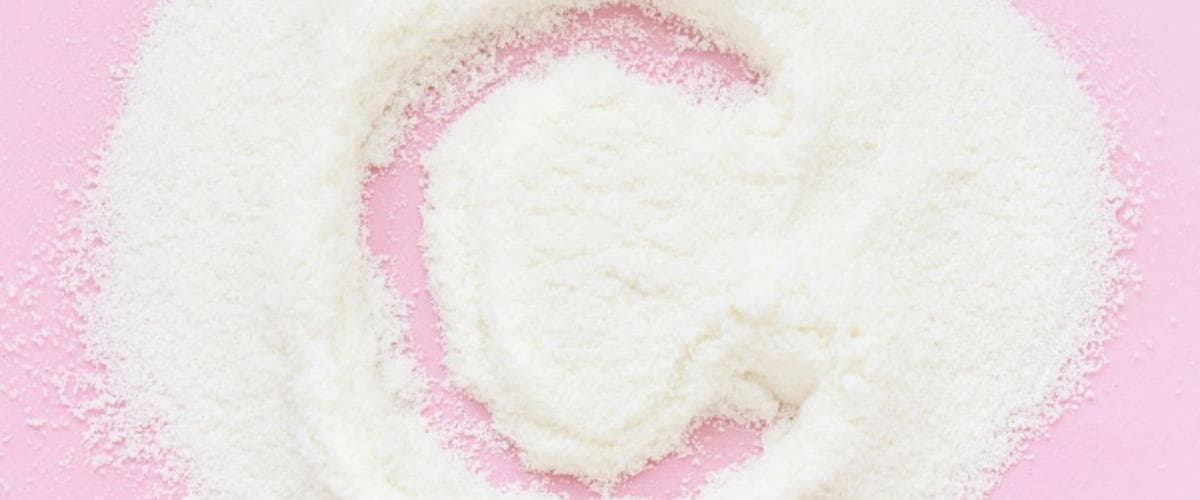Collagen is the most abundant protein in the body, with many important functions. It adds structure and strength to bones, skin, nails and hair and is the main component in our connective tissues, ligaments, tendons and muscles.
It also plays an important role in blood vessel elasticity and gut lining health, helping it to repair and rebuild.
Why should we think about taking it? As we age our bodies start to produce less collagen. At around age 30, production starts to decline by 1-2 % per year. By the time we reach menopause, 30% of skin collagen is lost, giving a thinner and less full appearance. This change is due to the drop in oestrogen that directly affects collagen production.
The benefits of collagen
Skin - collagen helps with the appearance and dryness of skin. Smoothing out lines and wrinkles, adding suppleness and elasticity.
Hair - keratin, a protein found in collagen, is what our hair is made of. Ensuring we have enough collagen helps to rebuild our hair and keep hair follicles healthy, which can prevent damaged and greying hair.
Bones - as we age bone density naturally declines and is further affected by loss of oestrogen in menopause. Collagen provides structure in bones and helps to keep bones strong.
Joints - we all know the importance of mobility as we age. Collagen helps to keep joints supple and can reduce stiffness and joint pain.
Gut health - collagen has been linked with reducing inflammation and improving gut permeability, as well as helping to rebuild and strengthen the digestive tract. This is because collagen is made up of the essential amino acids; glutamine and glycine, which are important for repair.
Heart Health - Collagen provides structure and elasticity to our arteries, and helps to keep them flexible. Taking a collagen supplement may help to increase levels of HDL ‘good’ cholesterol in the body.
How to increase levels through diet
Eat enough good quality protein, this will ensure you have the raw materials and the right amino acids to make collagen. Protein can be found in eggs, nuts, seeds, beans, meat and fish. Get the best quality protein you can afford, opting for organic and free range if possible.
Eating foods that contain vitamin c is also important as this is needed to make collagen. Include citrus fruits, red and green peppers, tomatoes, broccoli and greens. Foods that contain gelatine like bone broth and fresh stocks are also high in collagen.
Collagen Supplements
Once we reach our mid 30’s, a collagen supplement might be needed alongside diet, to improve levels. Collagen supplements are generally well tolerated and have very few side effects. There are a few different types depending on your dietary preferences.
There are many different types of collagen but 2 are available as supplements, both come from animal sources. Vegan options aren't actually collagen but rather a combination of nutrients that your body needs to make collagen.
Use this handy table below to get a quick overview of the differences in animal collagen
| MARINE COLLAGEN | BOVINE COLLAGEN |
|---|---|
| Comes from the scales, skin and bones of fish | Comes from cows usually by boiling the bones |
| Type 1 Collagen | Type 1 & Type 3 Collagen |
| Supports skin & hair health | Supports skin, nails, hair, bones, joints and gut health |
| Similar in size to human collagen & easier to digest due to smaller molecule structure | Lower cost than marine collagen |
| Not suitable for those with fish or seafood allergies | Free of the top 14 allergens |
| Tasteless - some reports of a mild smell | Tasteless - no smell |
Whichever collagen you choose, always make sure that you get hydrolysed collagen as this has already been broken down into an easily digestible format, ready for your body to absorb.
Some brands that I like include:
- Ancient+Brave (great and good value) you can get it direct here.
- Allergy Research - Arthred (great but more expensive)
- Great Lakes is a little cheaper and not too bad.
If you’d like to find out more about the right type of collagen for you or would like help with any aspect of perimenopause please get in touch here.
